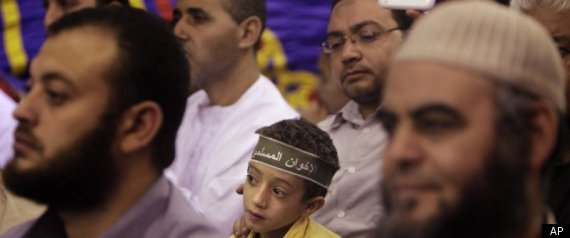UPDATES
To democracy or dictatorship? The US to engage the Muslim Brotherhood
July 1, 2011 | Daniel Meyerowitz-Katz

US Secretary of State announced last night that her administration plans to form some limited contact with the previously shunned Muslim Brotherhood in Egypt. This report comes just two weeks after the Brotherhood became a legal party in Egypt – for the first time in 80 years. Reuters quoted Clinton explaining her rationale for this decision:
“We believe, given the changing political landscape in Egypt, that it is in the interests of the United States to engage with all parties that are peaceful, and committed to non-violence, that intend to compete for the parliament and the presidency,” Clinton told reporters at a news conference.
“Now in any of those contacts, prior or future, we will continue to emphasize the importance of and support for democratic principles and especially a commitment to non-violence, respect for minority rights, and the full inclusion of women in any democracy,” she added.
Dr Barry Rubin has given some insightful thoughts on the way that this development has been portrayed in a number of mainstream media outlets. Meanwhile, the Washington Institute for Near East Policy Executive Director, Robert Satloff, has noted that there is nothing new about the US engaging the Brotherhood, however in this case the announcement seems to follow a general lack of policy regarding Egypt.
This is not, in fact, news. U.S. officials have engaged with MB members in the past, when the group’s representatives served in parliament…What is more striking about Clinton’s pronouncement is that it comes in the absence of a clear strategy to advance the prospect for a successful outcome to Egypt’s tumultuous changes.
…In the context of a well-articulated strategy to advance U.S. interests in Egypt, a decision about engaging with the Muslim Brotherhood — a political force whose success would clearly be inimical to U.S. interests — is a below-the-fold news story. But in the absence of such a strategy, America’s friends and adversaries will read outreach to the MB as fumbling in the dark.
There are, in fact, risks in even including the Brotherhood in the Egyptian democratic process at all. Were they to rise to power, there could be serious repercussions on Egypt’s newfound freedom. The potential for an Islamist takeover of Egypt is illustrated by Wahid Hamed, an Egyptian screenwriter, in a recent interview translated by MEMRI. Indeed, some have been drawing links between the rise of the Brotherhood in Egypt today and the Islamic Revolution that hijacked Iran’s bid for freedom in 1979.
In one of the most comprehensive investigations into the Islamist threat to Arab democracy, prolific Middle East commentator Jeffrey Goldberg had a piece in The Atlantic this month that demonstrated some of the Brotherhood’s more troubling qualities.
The Muslim Brotherhood is a global organization with autonomous branches, some more radical than others (the terrorist group Hamas, in Gaza, is a Muslim Brotherhood offshoot, for instance). There is a diversity of opinion, but those who affiliate with the Brotherhood believe, generally, in the primacy of Muslim law; in the supremacy of Islam; and in the idea that women and men should play their traditional roles in society. They also tend to believe that the West (and Israel, the country they consider a Western outpost in the Middle East) seeks, through conspiracy, to undermine their way of life.
…I recently had a conversation with Mohamed Morsy, one of the Brotherhood’s senior leaders, in which he refused, to an almost comical degree, to grapple with two simple questions: Could the Brotherhood support a Christian for the Egyptian presidency? Could it support a woman? (The Brotherhood’s 2007 draft party platform, from which the organization is now trying to distance itself, makes clear that a Christian could not serve as president of Egypt.)
“Which Christian?” Morsy responded when I first asked.
I explained: not a particular Christian, but any Christian.
“There are no Christians running for president,” he said.
Yes, I know. It’s a theoretical question.
“This is a nonsense question,” he said. So I asked him if the Brotherhood had ideological objections to a woman’s running for president.
“Which woman?” he asked.
Goldberg ends his piece by quoting an Egyptian playwrite named Ali Saleem, arguing that the success of US democracy is really because of the fact that no large amount of power is ever placed in the hands of one person.
“The great thing is, you have a president for four or eight years, and then out. If you are an enemy of the minister of culture and he bans your plays, you will be banned for only four or eight years. The beautiful idea is to limit the damage one human being can do to another. It’s a beautiful idea. Do you know how beautiful it is?”
As Hamas, the Muslim Brotherhood chapter in Gaza, has demonstrated, parties that are democratically elected can be far worse than some dictatorships, if their core ideals are anti-democratic. As the rise of the Nazis in the 1930s showed, the worst parties are not necessarily those who sieze power by force, but often include those that are only elected once. Any engagement with the Muslim Brotherhood must be very seriously scrutinised if we are to ever see a true democracy in Egypt.
Tags: Egypt





